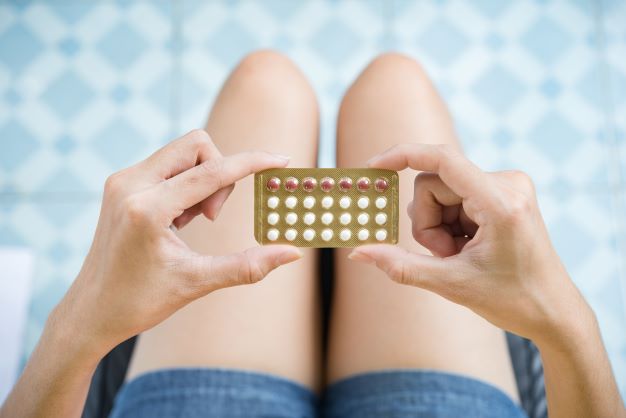Insomnia and Perimenopause: 9 Top Tips to Support Sleep
Sleep is a barometer of health and sleep difficulties dramatically increase at perimenopause. If you’re having trouble sleeping, find out the connections between insomnia and perimenopause and how to best support you for a good night’s sleep.

Contents
How common is Insomnia and Perimenopause?
Sleep disturbance is one of the most common symptoms of perimenopause, with up to 47% of women at peri-menopause and up to 60% of women post-menopause experiencing sleep problems (Menopause 2003).
Related: The 3 Stages of Menopause
What Causes Insomnia in Perimenopause?
Perimenopause is also known as the menopausal transition and is the time around the menopause where ovarian hormone production is winding down.
Hormones and Insomnia in Perimenopause
Perimenopause occurs due to the fluctuations and overall decline in ovarian hormone production (estrogen, progesterone, testosterone).
These changes not only herald the approach to menopause but can also indicate the start of sleep disruptions such as insomnia, poor sleep quality, hot flashes, night sweats, low energy levels, and daytime fatigue.
The changes in your ovarian hormones also impact other hormones that impact your sleep, such as cortisol and melatonin.
Importantly melatonin should ideally be high in the evening and cortisol levels should be low to support sleep. Fluctuating levels of estradiol in erratic ways can affect these hormones so your circadian rhythm is disrupted and are either unable to sleep or wake during the night.
Other Sleep Problems in Perimenopause
It is common for women in perimenopause to have multiple contributors to their sleep difficulties. This creates a perfect storm for poor sleep.
Other common contributors to insomnia during perimenopause include:
- Hot flashes and sweating can significantly impair sleep, from frequent awakenings, to waking completely wet and having to change the bedding.
- Heavy periods or flooding can occur in perimenopause, disturbing sleep.
- Frequent urination can cause multiple night wakings.
- Palpitations can wake women in the night in a state of panic or distress.
- Mood disorders such as depression and anxiety can make falling or staying to sleep difficult. These can be pre-existing, or be induced by perimenopausal hormonal fluctuations (Sex hormones and sleep problems 2020).
- Sleep disorders such as sleep disordered breathing/obstructive sleep apnea can cause multiple awakenings for the brain, even without your conscious awareness, making you feel exhausted during the day.
- Some people have additional medical conditions that impair their sleep such as snoring, restless legs syndrome, injuries, fibromyalgia or any other condition that is painful.
- Experiencing insomnia itself can then generate anxiety around not being able to fall asleep or staying asleep, compounding the problem and setting a pattern of insomnia in place.
Lifestyle factors that cause sleep problems in Perimenopause
There are important lifestyle factors that can contribute to insomnia in perimenopause. These include:
- staying up late,
- lack of sunshine exposure during the day,
- exercising late in the evening,
- shift work,
- frequent travel and jet lag,
- using caffeine or alcohol in the later parts of the day,
- young children or partners who disrupt your sleep or
- significant life stress.
Long Term Health Effects of Insomnia
Understanding the gravity of these shifts is essential. When translated into insufficient sleep, they can contribute to a host of potential health problems, from:
- reduced stress resilience,
- menopause brain fog or reduced cognitive function
- low mood, low energy and low libido,
- irritability,
- weight gain,
- compromised immune system and
- cardiovascular health.
It’s vital to prioritize sleep as a component of your overall healthcare during this time no only to reduce long term health impacts but also to feel better and function better in your everyday life.
Related: Sleep Requirements and Sleep Structure
It’s important to speak with your health provider about your chronic insomnia to ensure the correct cause for your insomnia is being addressed. Thankfully there are some absolutely excellent options to support your sleep in perimenopause.
1. Hormone Replacement Therapy (HRT)
For some women, hormone replacement therapy (HRT) is a beneficial strategy to manage symptoms and support better sleep.
Estradiol and progesterone are the two key hormones that decrease during perimenopause, and hormone therapy with these hormones can top up these hormones and even out the erratic fluctuations.
Having more stable levels of these hormones can support the brain with better autonomic stability. In this way the brain can better regulate body temperature, and heart rate as well as circadian rhythm so that you have reduced symptoms of hot flashes, night sweats and palpitations (Insomnia and Menopause 2020)
Learn more about: Menopause Hormone Therapy
Should I take Progesterone at night?
Evidence shows that natural progesterone has a positive effect on sleep. It acts on both benzodiazepine receptors and gamma-aminobutyric acid receptors (GABA) to both induce sleep and act as an anxiolytic.
This is because natural progesterone is converted into allopregnanolone that acts as a sedative and promotes deep sleep.
Synthetic progestins are less likely to have these sedative and calming effects.
It’s important to consult your healthcare provider to weigh the potential benefits and risks, as HRT is not suitable for everyone.
2. Exercise Improves Sleep in Perimenopause
Regular physical activity serves as a powerful tool against sleep disruptions. Exercise can relieve stress, improve mood, and help regulate hormones that influence sleep.
Aim for a minimum of 30 minutes of moderate-intensity exercise most days of the week, but be mindful not to schedule strenuous workouts close to bedtime, as this could lead to heightened alertness when you need to wind down.
A meta-analysis of perimenopausal women found that yoga, walking, fitness Qigong and aerobic exercise all effectively improved sleep duration, sleep quality and reduced insomnia symptoms (Exercise & Sleep in Perimenopause 2023).

Workouts for Tired Perimenopausal Women
It can be challenging to exercise when you feel so tired. A gentle yoga or Pilates class is a great option, as these exercises not only promote relaxation but can also address specific discomforts experienced by many perimenopausal women, such as lower back pain, weak pelvic floor and joint stiffness.
These low-impact exercises offer the dual benefit of enhancing physical health while also supporting better sleep.
3. Avoid Sleep Inhibiting Substances
Certain substances can significantly impair your sleep, especially for women in perimenopause who may find themselves more sensitive to their effects.
Common culprits include caffeine, alcohol, and nicotine. Limiting caffeine intake and avoiding it altogether within six hours of bedtime can help prevent its stimulating effects on your nervous system. It also disrupts the architecture of your sleep so even if it makes you get to sleep it is not as restful and restorative as it should be.
Don’t forget that some medications can inhibit your sleep including:
- antidepressants,
- antihistamines
- steroids
- salbutamol
- over-the-counter cold medication.
Speak with your healthcare provider to check if any of your medications or their timing is impacting your sleep.
4. Temperature Control: Staying Cool for the Night
Hot flashes and night sweats are some of the most common sleep disruptors during perimenopause. These sudden bursts of heat can lead to uncomfortable rises in body temperature, making it hard to fall or stay asleep. As previously stated, this is hormonally and neurologically driven so if you can take HRT it is one of the most effective ways to address this.
Strategies to Manage Temperature Fluctuations at Night
Additional measures can include:
- Keep your bedroom cool
- Consider moisture-wicking sleepwear and bedding materials.
- Have a fan handy/open the window or set the aircon/heat-pump to an appropriate temperature.
- A cool shower before bed can help cool you down too.
Experiment with different techniques to find what is most comfortable for you.
5. Down-Regulate your Nervous System to Improve Sleep
Practices that help to down-regulate the nervous system are invaluable when it comes to preparing the mind and body for rest. The modern world is highly up-regulating for our nervous systems which can be action packed with busy daily demands, technology that allows us to pack more into our day, social media and 24 hr new cycles.
Deep breathing exercises, meditation, and progressive muscle relaxation are just a few techniques that can be incorporated into your nightly routine to signal to your body that it’s time to sleep.
One study found that the practice of mindfulness meditation reduced anxiety, depressive symptoms and improved sleep in perimenopausal women (Mindfulness Meditation in Perimenopausal Women 2019)
Exploring the Relaxation Response
Down regulation is deliberately practicing shifting your nervous system from a sympathetic (fight or flight mode) to a parasympathetic (rest and digest mode) state. This state is necessary for restful sleep. There are many ways to down-regulate the nervous system such as:
- breathing exercises
- mindfulness
- meditation
- cold showers/face in a cold basin
- smile and express gratitude
- visualization exercises
- yoga nidra
Whatever you choose to do to down regulate your nervous system, remember it is a practice. As a practice it is a tool to train your mind and body to change states but it will take time to train your busy mind. These are skills for life so are worth the time they take to practice.
6. Establishing a Bedtime Routine
Routines help create anticipation for sleep due to the series between a series of steps and the expectation of a certain outcome, which in this case is sleep. A bedtime ritual can involve anything from dimming the lights, to taking a warm bath, to reading a novel. Whatever you choose should be calming and enjoyable.
Make your bedtime ritual personal and enjoyable.
Reflect on what activities help you relax—whether it’s snuggling and reading to the kids, sipping herbal tea, listening to calming music, or practicing gratitude—and build them into a consistent pre-sleep schedule.
7. The Role of Light and Dark Cycles in Sleep
With electricity and lighting available at all hours of the night, we underestimate the impact of exposure to light and darkness, which directly influences our circadian rhythm—the body’s internal clock.
During perimenopause, when hormone fluctuations are already affecting your sleep-wake cycle, it’s especially vital to be mindful of the role of light and how supporting your melatonin can reduce sleep disturbances and improve sleep quality.
The Importance of Melatonin Release
Melatonin, the hormone that makes you sleepy, is released in response to darkness. In the modern age of smartphones and tablets, it’s easy to expose ourselves to artificial blue light that can suppress melatonin and interfere with our ability to fall asleep.
Establishing a ‘no screens’ policy an hour before bed can create the ideal conditions for melatonin release. It can be part of your bedtime ritual and give you time to wind down away from your screen.
Melatonin supplements can be used to support sleep. If taken shortly before sleep it improves EEG patterns during sleep and also the reported sleep quality in postmenopausal women with sleep impairment. It also has beneficial effects on bone density and body weight (Melatonin & Menopausal women 2021).
8. Cognitive-Behavioral Therapy for Insomnia (CBTI)
CBTI is an effective tool for addressing the underlying thoughts and behaviors that contribute to your chronic sleep issues.
CBTI can equip you with skills and tools to short circuit patterns that impair your sleep such as
- Reduce conditioned waking,
- Identify and reduce habits that are ineffective at supporting sleep.
- Reducing sleep-related worry and other causes of an up-regulated nervous system.
You can work with a therapist or use one of many effective CBTI apps or programs such as:
9. Supplements to support sleep in perimenopause
The use of supplements may be beneficial in addressing sleep disturbances during perimenopause. Some commonly recommended supplements include:
- Magnesium: helps to relax muscles and has a calming effect on the nervous system, which can aid in falling asleep.
- Vitamin D: deficiency in vitamin D has been linked to poor sleep quality, increased night wakenings and an increased risk of sleep disorders. Supplementing with this essential nutrient may improve your sleep (Vitamin D Supplementation and Sleep 2022).
- Valerian root (Valeriana officinalis): is a natural herb that has been shown to improve quality of sleep and decrease the amount of time it takes to fall asleep.
- Tart Cherry (Prunus cerasus): contains tryptophan, a precursor to melatonin. A meta-analysis of studies shows that tart cherry is effective at improving total sleep time and sleep efficiency (Tart Cherries and Sleep 2023)
It’s important to consult with a healthcare professional before starting any new supplements, as they may interact with other medications or have potential side effects. Everyone’s body is different, so it’s important to find the right combination of supplements that work best for you.
The Bottom Line
Perimenopause brings about many changes, including disruptions to sleep. It’s important to recognize the role of hormones and how they impact your sleep patterns. Communicating with your healthcare provider can help determine if menopause hormone therapy, medication or timing adjustments are necessary.
In addition, implementing strategies such as temperature control, down-regulating your nervous system, establishing a bedtime routine, using melatonin and being mindful of light exposure can all aid in improving your sleep during perimenopause.
CBTI can also be an effective tool for addressing chronic sleep issues. Remember to prioritize self-care and make time for practices that promote relaxation and restful sleep.
Insomnia and perimenopause don’t need to exist together – a good night’s sleep can be in your future. Sweet dreams!
References
Kravitz HM, Ganz PA, Bromberger J, et al. Sleep difficulty in women at midlife: a community survey of sleep and the menopausal transition. Menopause. 2003 Jan-Feb;10(1):19-28.
Morssinkhof MWL, van Wylick DW, Priester-Vink S, et al. Associations between sex hormones, sleep problems and depression: A systematic review. Neurosci Biobehav Rev. 2020 Nov;118:669-680.
Proserpio P, Marra S, Campana C, et al. Insomnia and menopause: a narrative review on mechanisms and treatments. Climacteric. 2020 Dec;23(6):539-549.
Zhao M, Sun M, Zhao R, et al. Effects of exercise on sleep in perimenopausal women: A meta-analysis of randomized controlled trials. Explore (NY). 2023 Sep-Oct;19(5):636-645.
Xiao C, Mou C, Zhou X. Effect of mindfulness meditation training on anxiety, depression and sleep quality in perimenopausal women. Nan Fang Yi Ke Da Xue Xue Bao. 2019 Aug 30;39(8):998-1002.Treister-Goltzman Y, Peleg R. Melatonin and the health of menopausal women: A systematic review. J Pineal Res. 2021 Sep;71(2):e12743.
Stretton, B., Eranki, A., Kovoor, J. et al. Too Sour to be True? Tart Cherries (Prunus cerasus) and Sleep: a Systematic Review and Meta-analysis. Curr Sleep Medicine Rep 9, 225–233 (2023).
Abboud M. Vitamin D Supplementation and Sleep: A Systematic Review and Meta-Analysis of Intervention Studies. Nutrients. 2022 Mar 3;14(5):1076.






